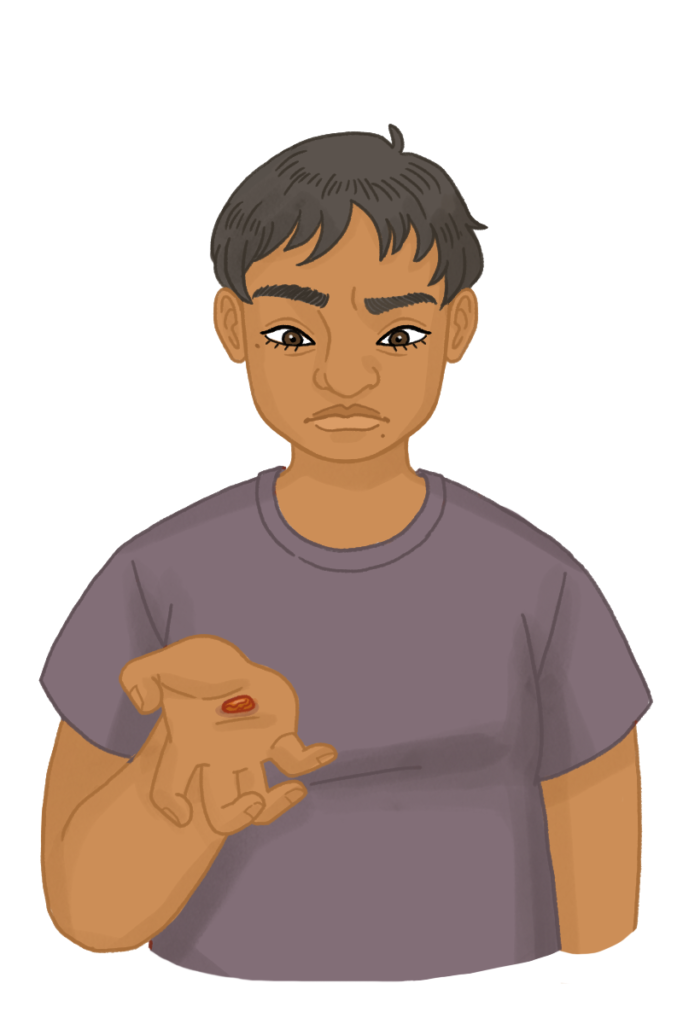





Mindfulness – Mindful Awareness Copy
Mindfulness comprises a number of techniques that help us experience the present moment. It helps us to tolerate thoughts and feelings without having to judge or interpret them.
Mindfulness exercises help increase awareness of bodily sensations and help children connect them with the other corners of the square, for example, trauma-related feelings and consequent maladaptive behaviors. The mindfulness tools that are used in CCT are mindful awareness (raisin exercise) and standing meditation (Mountain Pose). The benefits of mindfulness to mental health are widely studied and confirmed in randomized controlled trials.

Mindful awareness can be approached with a simple exercise with raisins or other food. Ask the child to hold a raisin between the fingers and describe their experience: what do they feel by touching it, smelling, seeing, hearing, and, at the end, by tasting it?
Always inquire about allergies before doing this exercise with food. Alternatively, the exercise can be done by picking an object to focus on, taking a walk in nature, or focusing on the whole room. The idea is to describe the experience using the five senses in as much detail as possible.
Mindful Awareness Exercise
Practice this mindful awareness exercise by using a raisin or other food that a child might be able to experience in session. What do you see? What do you feel if you roll it between your fingers? What do you hear? What is the smell of the raisin (or other food)? What is the taste and texture in your mouth?
